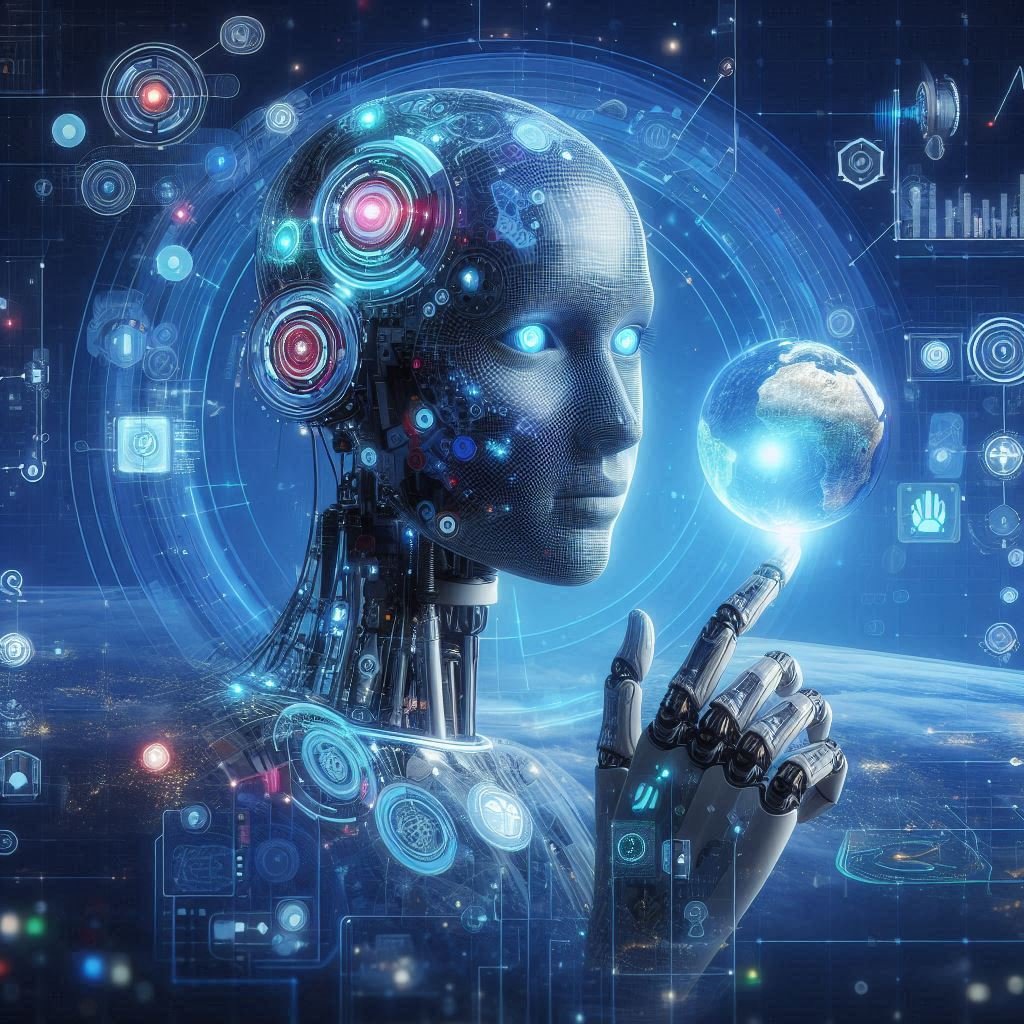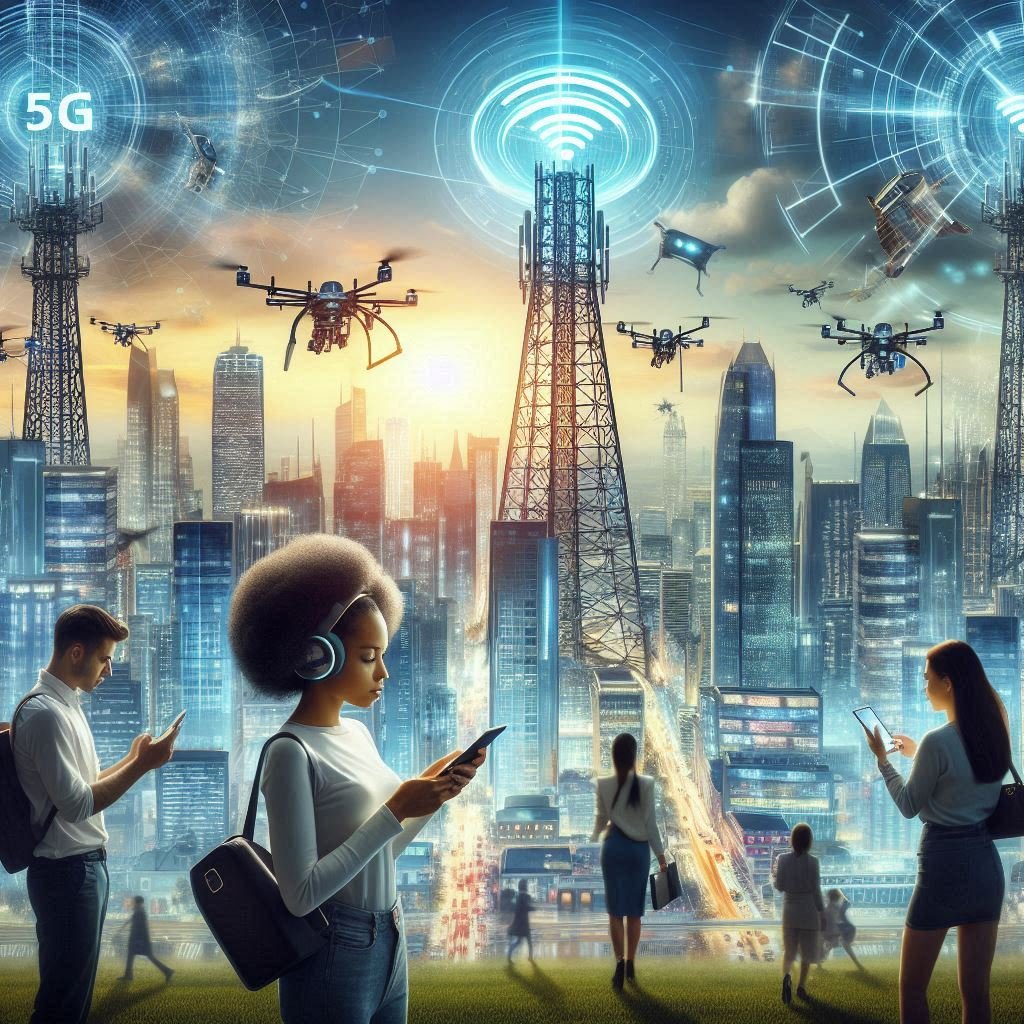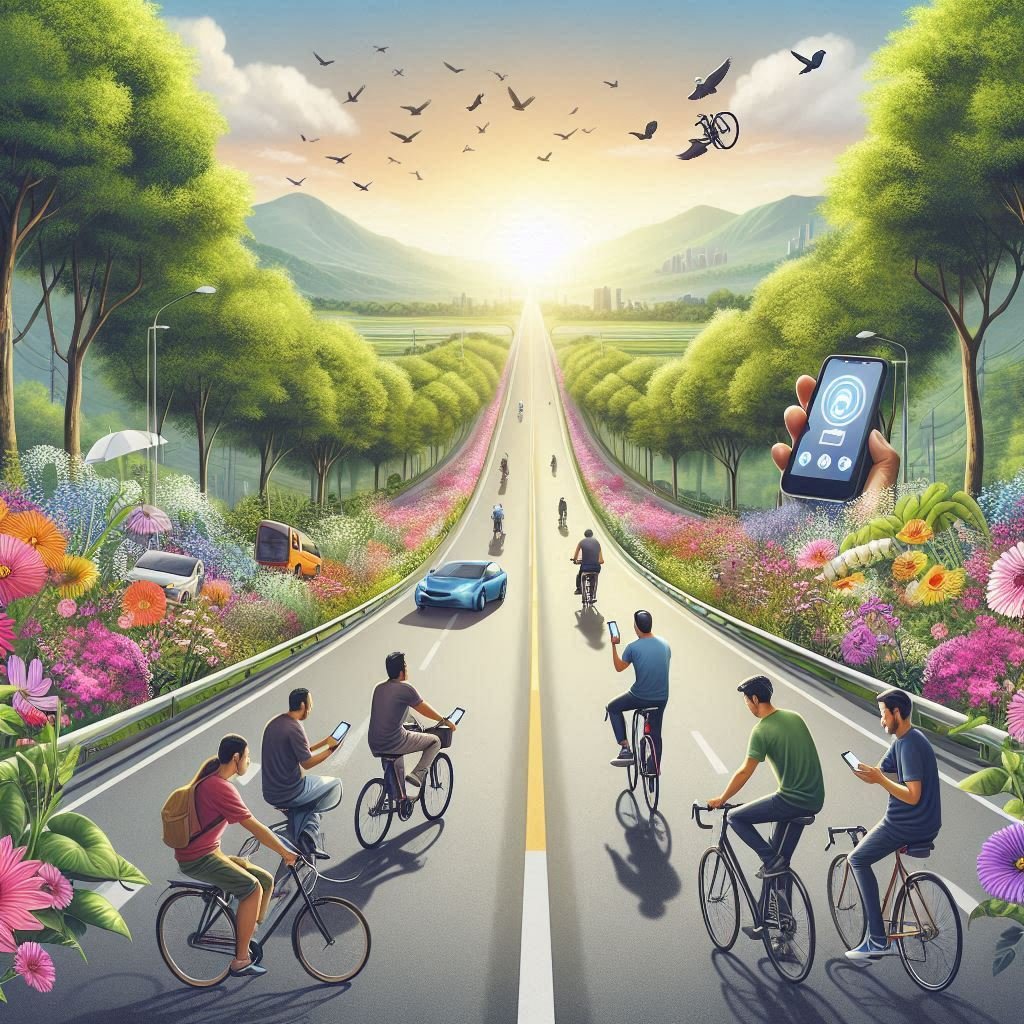As we approach 2025, technology continues to evolve at a breakneck pace, bringing new innovations and disrupting industries. The coming years will see remarkable advancements in fields such as Artificial Intelligence (AI), the Internet of Things (IoT), Quantum Computing, and more. This article delves into some of the most exciting technologies that are poised to shape the future, along with their implications, trends, and potential applications.

Table of Contents
- Key Technologies to Watch in 2025
- Artificial Intelligence (AI) and Machine Learning
- Quantum Computing
- 5G and Beyond: The Revolution in Connectivity
- Blockchain: A Future of Secure and Transparent Transactions
- Autonomous Vehicles: The Road to a Driverless Future
- The Road Ahead: The Impact of Technology on Society
- Conclusion: Embracing the Future
1. Key Technologies to Watch in 2025
Here are some of the most anticipated technologies that will dominate the landscape in 2025:
| Technology | Description | Impact |
| Artificial Intelligence | AI is evolving towards more human-like interactions, with improved cognitive abilities, natural language processing, and machine learning models. | Revolutionizing sectors like healthcare, education, finance, and entertainment. |
| Quantum Computing | Quantum computers harness quantum bits (qubits) to perform calculations at speeds far beyond classical computers. | Faster problem-solving for complex issues, such as drug discovery and climate modeling. |
| 5G and Beyond | Next-generation wireless technology offers ultra-fast internet speeds and lower latency, with more reliable connectivity. | Powering innovations in autonomous vehicles, smart cities, and the IoT. |
| Blockchain | Blockchain is evolving from cryptocurrencies to broader applications such as secure data storage, decentralized finance (DeFi), and smart contracts. | Increasing trust, transparency, and security in digital transactions and operations. |
| Autonomous Vehicles | Self-driving cars, trucks, and drones will use AI, sensors, and advanced mapping to navigate the world without human intervention. | Transforming transportation and logistics with increased safety and efficiency. |
2. Artificial Intelligence (AI) and Machine Learning

Artificial Intelligence continues to be one of the most transformative technologies. By 2025, AI will have an even deeper impact on how businesses and individuals interact with technology. More sophisticated models will help drive personalized experiences, automate complex decision-making, and unlock the potential for predictive analytics across a wide range of sectors.
Key AI Developments Expected in 2025:
- AI-driven healthcare: AI algorithms will predict diseases, personalize treatment plans, and aid in drug discovery.
- Enhanced natural language processing (NLP): AI systems will better understand and interact with human language, leading to smarter assistants and more intuitive communication tools.
- AI in creativity: Artists, musicians, and writers will increasingly collaborate with AI for creating new content.
Keywords: AI, machine learning, healthcare, predictive analytics, natural language processing (NLP)
3. Quantum Computing

Quantum Computing is one of the most exciting and transformative technologies on the horizon. By utilizing quantum bits (qubits), quantum computers can process information exponentially faster than classical computers, solving problems previously thought impossible. This technology has the potential to change everything from cryptography to material science.
Applications of Quantum Computing by 2025:
- Drug discovery: Quantum computers will simulate molecular structures, leading to faster and cheaper drug development.
- Climate modeling: Quantum simulations can provide insights into complex weather systems and environmental patterns, aiding in climate change research.
- Cybersecurity: Quantum encryption will create virtually unbreakable encryption methods, transforming digital security.
Keywords: Quantum computing, qubits, encryption, drug discovery, material science
4. 5G and Beyond: The Revolution in Connectivity

The rollout of 5G networks will continue throughout the early 2020s, but by 2025, we can expect to see 5G widely available, with greater emphasis on ultra-low latency and near-instantaneous connectivity. This next-generation wireless technology will enable innovations that rely on real-time data processing, making the Internet of Things (IoT), smart cities, and autonomous vehicles more practical than ever before.
Impact of 5G in 2025:
- Smart cities: 5G will power the backbone of smart city technologies, enabling real-time data processing for things like traffic management, waste management, and energy efficiency.
- Autonomous vehicles: Self-driving cars and drones will require constant, high-speed communication to function effectively and safely.
- Healthcare innovations: 5G will enable remote surgeries and telemedicine solutions, offering faster data exchange and improved patient care.
Keywords: 5G, wireless networks, IoT, autonomous vehicles, smart cities
5. Blockchain: A Future of Secure and Transparent Transactions

Blockchain is no longer just associated with cryptocurrencies like Bitcoin. By 2025, blockchain technology will revolutionize industries by offering secure, decentralized platforms for managing data and transactions. This technology ensures that every transaction is transparent, immutable, and traceable, which is crucial in areas such as finance, healthcare, and supply chain management.
Applications of Blockchain by 2025:
- Supply chain management: Blockchain will provide transparent and efficient tracking of goods, reducing fraud and increasing accountability.
- Smart contracts: These digital contracts will automatically execute when predefined conditions are met, reducing the need for intermediaries.
- Decentralized finance (DeFi): Blockchain will continue to expand decentralized finance platforms, making it easier for people to access financial services without relying on traditional banks.
Keywords: Blockchain, decentralized finance (DeFi), smart contracts, supply chain, security
6. Autonomous Vehicles: The Road to a Driverless Future
Autonomous vehicles, powered by AI, machine learning, and sensor technologies, will become more advanced by 2025. These vehicles will not only be safer than human-driven vehicles but also more efficient and accessible. While the full integration of autonomous vehicles on the roads may take longer, 2025 will see significant advancements in self-driving technology and deployment in various sectors.
Applications of Autonomous Vehicles by 2025:
- Transportation: Autonomous trucks will streamline logistics and reduce costs by providing 24/7 transportation without human intervention.
- Passenger vehicles: Self-driving cars will allow for safer and more accessible transportation, reducing accidents and offering mobility for people with disabilities.
- Drones: Drones will also become more autonomous, playing a key role in delivery services and surveillance.
Keywords: Autonomous vehicles, self-driving cars, logistics, drones, AI, safety
7. The Road Ahead: The Impact of Technology on Society

These technologies will not only impact industries but also our daily lives. By 2025, the widespread use of AI, quantum computing, 5G, blockchain, and autonomous vehicles will bring about a smarter, faster, and more interconnected world. However, with these advancements come ethical considerations, such as privacy, job displacement, and cybersecurity concerns, which need to be addressed for the successful integration of these technologies.
8. Conclusion: Embracing the Future
The technologies emerging by 2025 will reshape how we live, work, and interact with the world. As innovation continues to accelerate, the next few years promise to be transformative, offering boundless opportunities for those ready to embrace the change. From AI breakthroughs to the rise of quantum computing, the future is closer than ever before, and it’s filled with promise.
For further insights and updates on emerging technologies, visit these trusted sources:
Hashtags:
#FutureTech #Innovation2025 #AI #QuantumComputing #5G #Blockchain #AutonomousVehicles #TechRevolution #SmartCities #EmergingTech #NextGenTech


